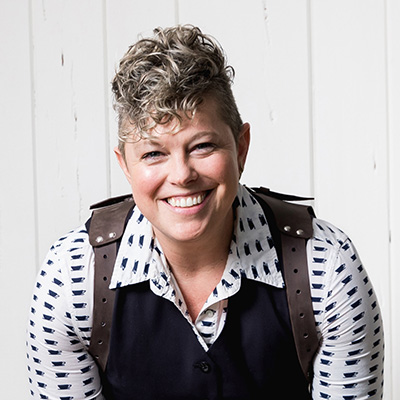Communication breakdowns between service providers and clients are all too common. Emails, calls, and Zoom meetings can easily be misconstrued, and even in-person meetings can end in frustration on both sides. However, with some insight and intentionality, you can transform client interactions into opportunities for mutual understanding and strengthened partnerships.
The Root of Communication Challenges
When communication goes awry, it’s rarely about what was actually said or written. More often, it stems from each party’s past experiences and emotional activations. As a people leader, your role is to get curious about what unmet needs might underlie a client’s reactions.
By recognizing their behavior as a potential trauma reaction—and not a personal attack—you can remain calm and identify openings for connection. Conscious communication requires identifying gaps between expectations and reality so that you can close them compassionately.
Cultivating Openness and Understanding
The building blocks of conscious communication include:
- Open-mindedness and open-ended questions
- Considering verbal and non-verbal impact
- Adjusting your approach to align with the client
- Checking your ego at the door
Conscious communication lives at the highest two levels of listening—Level 3 (Global) and Level 4 (Immersive). When you’re in a coach mindset and employing global listening, you’ll be able to hear the client’s words, notice what is going unsaid, observe their body language, ask reflective questions, and maintain self-awareness in your own posture and facial expressions, as well as voice, tone, and sentiment of responses.
Being immersed with your client means that you can be fully present, mentally and energetically engaged, self-aware at all times, and an observer of the full conversation from a third-party perspective.
When tensions run high, conscious conversations call for:
- Slowing down the pace
- Making comfortable eye contact, if possible
- Using “I” statements, not “you” accusations
- Asking clarifying questions about meaning
- Taking responsibility for your contributions
- Naming unmet needs and making direct requests
Bridging the Gap Between the Lines
When verbal or written communications from clients seem confusing or aggressive, pause before responding. What past experiences might be shaping their perspective? Consider your client as a multidimensional being, with years of past experiences that inform how they think, speak, and act.
- Concern on their part may signify a need for reassurance
- Requests for a faster timeline might reveal underlying doubts or distrust
- Combative stances may indicate unconscious feelings of powerlessness
- Agreeableness may be hiding bottled-up resentment
Rather than making assumptions, get curious about the roots of their communication style. From that more empathetic place, you can then respond clearly and with healthy boundaries. It may also be helpful to remember that most of what a client is projecting onto you stems from somewhere else, such as negative past experiences, accountability to someone else within their organization, anxiety about job security, and so on.
Conscious Communication in Action
Putting this into practice can feel vulnerable, especially when emotions run high. Try writing out your instinctive response, then letting it go. From that centered place, summarize the core concerns at play and address them directly and concisely.
The goal isn’t to fix or console the client but to convey that you hear them and are committed to understanding their needs more deeply. With time, conscious listening and questioning can transform client conflicts into springboards for greater trust and clarity.
Continue Reading “Cultivating Right Business Relationships” »




0 Comments